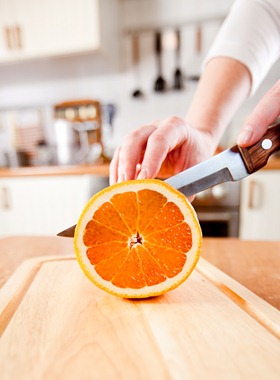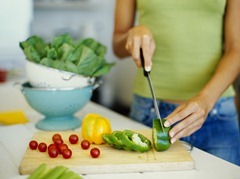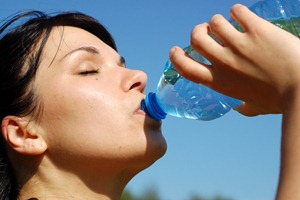
Recent research carried out at the Harvard School of Public Health calls into question the often cited weight-loss advice to “Eat Less, Exercise More” – advice which is over-simplistic. It also calls into question the food industry mantra that “there is no such thing as a bad food”.
The Harvard School of Public Health have an excellent website, carry out excellent research, and are unafraid to provide clear and unbiased advice.
In a series of three separate studies looking at diet and other lifestyle factors, researchers found that long-term weight gain was closely linked to:
- Intake of specific foods and drinks
- Physical activity
- TV-watching
- Sleep duration
In particular, changes in diet had the biggest effect on weight gain. The research appears in the June 23, 2011, issue of the New England Journal of Medicine.
Preventing Obesity
The average person puts on excess weight very gradually – about 0.5 kg (1 lb) per year. Half a kilogram of excess weight isn’t much – but over the course of a few decades you can easily pile on 10 kg, ending up overweight or obese. The researchers at Harvard looked at data collected over a 20 year period, and the results paint an interesting picture of how weight gain creeps up on us. It also highlights which foods and lifestyle factors are most closely related to weight gain.
“An average adult gains about one pound per year. Because the weight gain is so gradual and occurs over many years, it has been difficult for scientists and for individuals themselves to understand the specific factors that may be responsible,”
said lead author Dariush Mozaffarian, associate professor and one of the authors of the research.
Name and Shame!
The research points to several foods as being most closely associated with weight gain:
- Potato chips/crisps (for each one increased daily serving, +1.69 lb more weight gain every 4 years)
- Other potatoes (1.28 lb)
- Sugar-sweetened beverages (1.00 lb)
- Unprocessed meats (0.95 lb)
- Processed meats (0.93 lb)
Good Foods!
Several foods were associated with less weight gain when their consumption was increased, including vegetables (−0.22 lb), whole grains (−0.37 lb), fruits (−0.49 lb), nuts (−0.57 lb) and yogurt (−0.82 lb).
The bottom line? Eating more of certain foods can actually help prevent weight gain. Avoiding other key “bad” foods can also help avoid weight gain. The take home message:
- Eat more minimally processed foods (e.g. fruits, vegetables, nuts, yogurt)
- Avoid highly processed foods (e.g. white breads, bagels, processed meats, cakes)
- Avoid sugar
- Avoid sugary drinks & sweets
- Eat fewer potatoes and refined grains (white rice, breakfast cereals low in fiber, other refined carbohydrates)
If you’re overweight, we recommend avoiding sugar and refined grains – including bread, pasta & white rice.
Why should the type of food we eat influence long-term weight gain? Surely it’s all about how many calories we take in (by eating food) balanced against calories we burn (by being active)?
Good Foods vs Bad Foods
It turns out that not all calories are created equal. Different foods have different effects on hunger, insulin levels, and feelings of fullness (satiety) – so eating more of certain foods may help us to eat more healthily.
Nuts, fruits, vegetables and whole grains are unprocessed – it takes time to chew them and digest them. If you eat more of these foods, you feel full for longer – so overall, you’ll consume fewer calories over the course of a day.
By way of contrast, when you eat sweets, the calories are easily absorbed and you will not feel full for long – you’ll soon be ready for more empty calories in a vicious cycle of over-consumption.
According to Frank Hu, professor of nutrition and epidemiology at Harvard and senior author of the paper: “The idea that there are no ‘good’ or ‘bad’ foods is a myth that needs to be debunked.”
The following video shows Dr Mozaffarian talking about the research:
The research also found that TV watching and sleep habits were linked to long-term weight gain:
- More TV watching was linked to weight gain
- Sleeping less than 6 hours or more than 8 hours per night was linked to weight gain
Overall, the weight-changes associated with any one lifestyle change were fairly small. However, together they added up – especially for diet. Small lifestyle changes can together make a big difference – for bad or good.
It is easy to gain weight unintentionally – excess weight creeps up on us gradually over a number of years. However, making simple lifestyle changes has the potential to help prevent and treat obesity.


